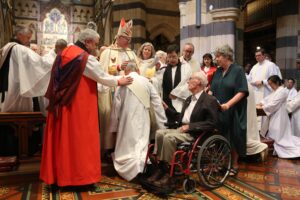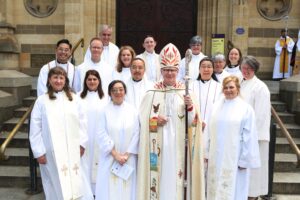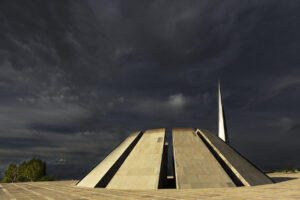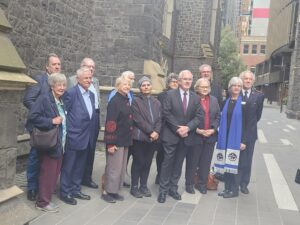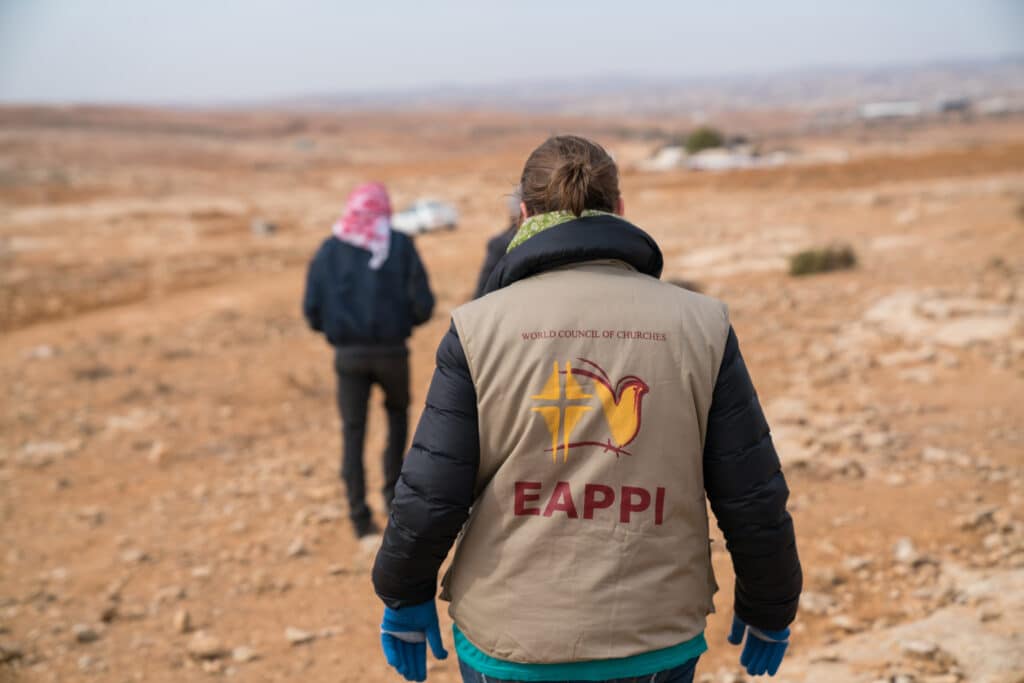
Jenan Taylor
18 September 2024
A faith-based peacekeeping program in the Holy Land says a shortage of international volunteers is reducing its ability to keep people safe in parts of the troubled West Bank.
The volunteers enable the Ecumenical Accompaniment Programme in Palestine and Israel to chaperone people, including school children and shepherds, around military check points and through hostile settler areas.
EAPPI Jerusalem coordinator Yusef Daher said there was a shortage of these volunteers, or ecumenical accompaniers, at a time when they were needed more than ever.
It comes as humanitarian and human rights groups reported the Israeli army’s increased detention of Palestinians, and excessive use of force against those in the West Bank, in early September.
Global conflict prevention organisation the International Crisis Group also reported that some West Bank settlers were growing more violent towards Palestinians.
Mr Daher said Israel’s visa restrictions on international visitors amid these tensions, had left the EAPPI without sufficient volunteers.
Read more: Christians urged to push for lasting peace in Gaza
He said the program aimed to offer people a sense of international community protection and to witness and document their daily struggles in the occupied territories.
Mr Daher said the EAPPI recruited about 100 volunteers a year from around the world to help it cover communities in parts of the West Bank.
But he said the program, which only properly reopened earlier this year after the Hamas attacks on Israel last October, was lucky to get half that number of EAs now.
He said some volunteers were being denied entry at the airport or other checkpoints or were only allowed to stay a week, even if they were issued three-month visas.
The World Council of Churches created the EAPPI in 2002 in response to a call from Jerusalem churches for an international mechanism that could advocate for peace and justice in the country.
Since then, it has documented hundreds of human rights violations and violent incidences from Palestinians and Israelis, and has worked with the United Nations Children’s Fund to provide additional protection for children.
Mr Daher said the EAs often went into situations where violence was possible or probable because their presence tended to reduce the level of brutality that could happen.
He said the program was now grappling with financial difficulties because 24 ecumenical accompaniers per quarter were needed for the initiative to break even.
Read more: ‘We shout and plead with God … that this terrible suffering might end’
Mr Daher said people reported feeling anxious about their safety without the EAs, especially amid the rising hostilities.
“The local communities are calling us back, because they say settlers are becoming more vicious,” Mr Daher said. “They say they want EAPPI because it has an international presence, not just a local presence, which is more needed now than ever. We are needed more than ever.”
Act for Peace international programs and partnerships manager, and past EAPPI volunteer Aletia Dundas said the program was significant for her because it aligned with her Quaker faith, and her non-violent action values.
She said the EAPPI was on the side of human rights and on the side of peace with justice, rather than being neutral in the conflict.
“We worked with Christians in Bethlehem and Jerusalem, with people who identified as Muslim and other faiths in the West Bank and with Jewish people from Israel who stood against human rights abuses,” Ms Dundas said.
“We worked with anyone who was working against the occupation and against human rights abuses.”
Read more: Christians cannot look away from Gaza, we must speak up
Latrobe University international relations academic Professor Joseph Camilleri said the intentions of unarmed civilian protection groups in Israel and Palestine were positive, but the context there was fraught with danger.
Professor Camilleri said it was a war situation in the occupied territories where genocide was being practiced without impunity, and no one was doing anything to stop it.
He said civilians who were there to take non-violent action without the backing of their government had to seriously consider the implications of not having this support.
“[Israeli authorities] have defied the International Court of Justice which is the most authoritative international legal institution,” Professor Camilleri said.
“What would an unarmed civilian do in this context? It is different from monitoring harassment and humiliation that has been going on for years.”
The Australian government’s travel advisory warns against travel to the West Bank, excluding East Jerusalem, and asks people to reconsider their need to travel to Israel and the Occupied Palestinian Territories overall.
For more faith news, follow The Melbourne Anglican on Facebook, Instagram, or subscribe to our weekly emails.

